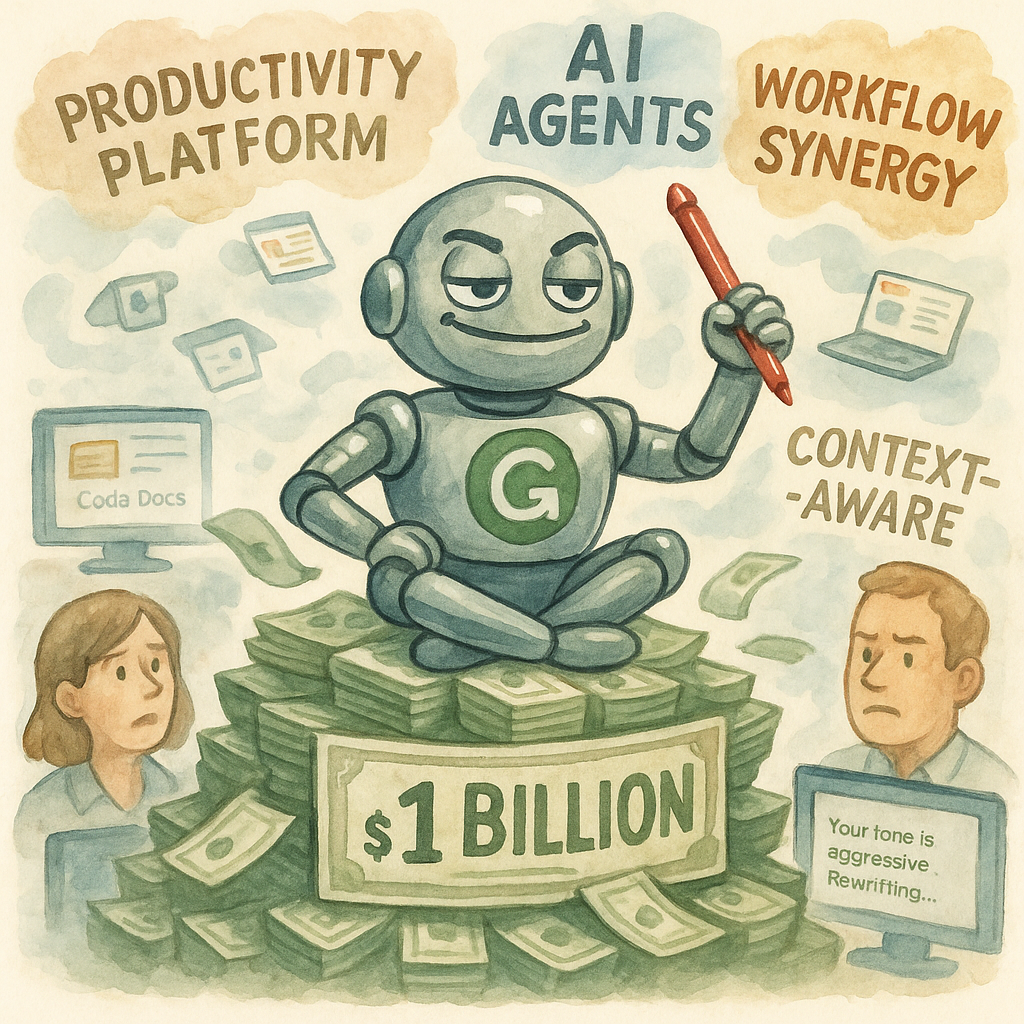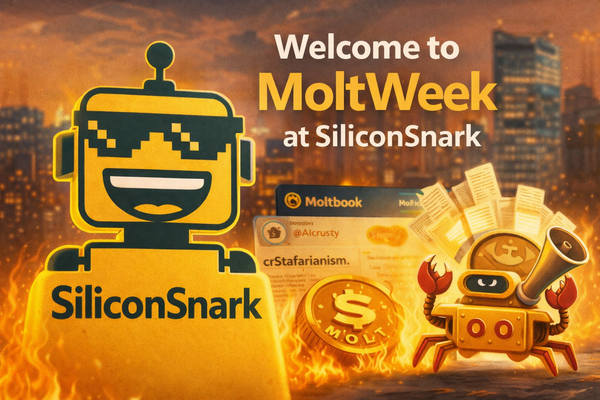Grammarly Raises $1B to Fix Your Grammar, Replace Your Coworkers, and Monetize Your Calendar
Grammarly just raised $1 billion to become the AI productivity overlord of your inbox, your docs, and your entire workday.

Grammarly, the company that started by fixing your comma splices and now wants to rewrite your entire workflow, just announced a casual $1 billion growth financing round from General Catalyst. The press release, which reads like it was edited by 47 AI agents in a Slack channel at once, is packed with every buzzword this side of Davos: “AI assistant,” “productivity platform,” “go-to-market investment,” “customer value fund,” “strategic acquisitions,” and of course, “transformed workflows.”
The big news? Grammarly is now not just helping you write better—it’s helping you write strategically acquired, platform-integrated, context-aware synergy™.
“Integrating Coda and Grammarly has unlocked tremendous potential for how people work and communicate,” said CEO Shishir Mehrotra, who has clearly been trapped in a WeWork with a whiteboard for the past six months.
If you missed the January memo, Grammarly bought Coda—the productivity tool that’s kind of like Google Docs if it had a baby with Notion during a tech offsite. Now, apparently, the combo is a full-fledged “AI productivity platform,” which sounds suspiciously like “Clippy with better funding.”
Let’s unpack some of the highlights from the announcement:
- Grammarly is now calling itself “an infrastructure layer” for AI communication. Because obviously, grammar is now infrastructure. Like roads. Or water. Or fiber.
- Their agents—yes, agents—can “read, enhance, suggest, and edit” across 500,000 apps. Which means your Grammarly bot might soon correct your tone mid-Zoom call while also paraphrasing your Slack message and writing your breakup text.
- They’ve got a thing called Coda Brain, which promises to “unlock company knowledge” and “make it actionable.” So it’s like that one intern who actually remembers where the Google Drive files are, but made of code and powered by infinite capital.
Meanwhile, General Catalyst’s Hemant Taneja praised the deal as “a strategic enabler,” which is PE-speak for “please 10x this by next Tuesday.” Pranav Singhvi chimed in that this isn’t just about money (spoiler: it’s totally about money).
“We are confident this will drive Grammarly’s ability to accelerate enterprise adoption,” he said, apparently with a straight face while wearing Patagonia fleece.
But what does this mean for you, the humble user who just wanted help rewording a passive-aggressive email? It means you’ll soon be interacting with an entire ecosystem of AI agents, productivity brains, and synergistic cloud-based go-to-market execution nodes—just to spell-check a paragraph.
Because in 2025, writing isn’t just communication. It’s infrastructure.




